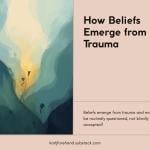In a documentary specifically about gay rights in California, shouldn’t a discussion of the current state of gay rights in California not just be useful, but mandatory? However, the reason 8 avoids this discussion should be obvious: the existence of domestic partnerships in California equivalent to marriage directly undercuts the necessity for gay “marriage”. The existence of domestic partnerships means the battle over Prop 8 wasn’t about allowing gays to visit their sick partners in the hospital or share in health care benefits — those privileges have been available since 2005. It was about semantics — literally, about who gets to use the word “marriage”. It’s a battle of symbolism, nothing more.
What’s more: all the same-sex marriages before Prop 8 passed are still valid, including Tyler and Spencer’s. They are still married today — literally, ‘married’, not just with a domestic partnership. Isn’t that also a relevant fact that you would expect in a documentary about gay marriage and Prop 8?
8 wants to pretend domestic partnerships don’t exist in California, and that the Prop 8 battle was about actual privileges and blessings being blocked from gay couples, rather than about usage of a word. 8 wants to pretend that Tyler and Spencer’s legal status was actually in the balance in the Prop 8 election, and that its passing has altered their relationship. 8 shows us the happy occasion of Tyler and Spencer’s wedding in June 2008, then the narrator (Dustin Lance Black — screenwriter of Milk and another former Mormon) solemnly intones that “their happiness wouldn’t last long. Already there were dark forces conspiring to take it all away…”
Take ‘what’ away? Tyler and Spencer are still married. Their legal status, privileges, and benefits under California law are the same today as the day they got married.
Tyler describes how he and Spencer “were able to enjoy weeks and weeks of the benefits of marriage” and then woke up “defeated” on November 5th, after hearing the proposition passed. (What’s stopping you from “enjoying the benefits of marriage” today? You’re still married. Why imply otherwise?)
Spencer asks, in frustration, “Who could have voted for this? Who could have done this to us?” (Done ‘what’? You’re still married…)
If that’s not intellectual dishonesty to consistently imply that Prop 8 had actual legal ramifications for Tyler and Spencer’s marriage — and others like them — when it did not, then what is? Why not be straight-forward about what Prop 8 meant and what it didn’t so viewers can judge for themselves?
If we are supposed to believe that domestic partnerships in California are not good enough — only “marriage” will suffice — the subject should be dealt with directly. 8 doesn’t seem to have an answer for why “marriage” is needed (not just ‘wanted’), and ducks the issue entirely.
Tyler’s mom — who has commendably been supportive of her son and son-in-law from the begining — is the only person in the entire film who acknowledges the existence of domestic partnerships in California. Why, according to her, should California have gay marriages instead of domestic partnerships? (“It’s just different,” she says, “Marriage took [Tyler and Spencer’s] relationship to a whole new level.”) Not exactly a logically robust argument…
Begging the Question on Civil Rights
Virtually all people in the US think murder is wrong. Many Americans support legalized abortion without restrictions. To a hard-edged “pro-lifer”, this is an unfathomable contradiction.
No, it’s not. The explanation is simple: those people do not consider abortion to be “murder”. They do not accept the basic premise behind the entire pro-life argument.
For a pro-lifer to have a productive dialog with someone and attempt to convince them that abortion should be illegal, they have to start from that premise and work upwards. They can’t start by just assuming something is self-evident to the other side that (obviously) is not. Generally speaking, the people that believe that abortion is murder…tend to oppose abortion already.
Virtually all Americans – including Mormons — believe that everyone, regardless of race, gender, or sexual orientation, should have the same civil rights as everyone else. Many Americans oppose governmental recognition of same-sex relationships using the word “marriage”. Everyone involved with 8 the documentary seems to believe this is also an unfathomable contradiction.
It’s not, for the same reason: Those people do not consider legal recognition of same-sex relationships using the word ‘marriage’ to be a “civil right”. Thus, any productive dialogue must start at that issue and work forward. Gay marriage supporters can’t just start by assuming that it’s self-evident governmental recognition of same-sex relationships as a ‘marriage’ is a “civil right”, as Cowan and company seem to do.
“Civil rights” is a term used at least 20 times within 8: The Mormon Proposition, without further discussion in any of them. What defines a “civil right”?
Gay marriage supporters in the film lament that Prop 8’s passing is “the first time in the history of the U.S. laws have been passed to take away rights from its citizens.” Which is patently false: after the Civil War, the U.S. government took away the right of Southerners to own slaves. You say owning slaves isn’t actually a “civil right” and never was? Well, many Southerners certainly believed it was at the time — obviously, then, just because a group of people believe something is a “civil right” doesn’t automatically make it so.











